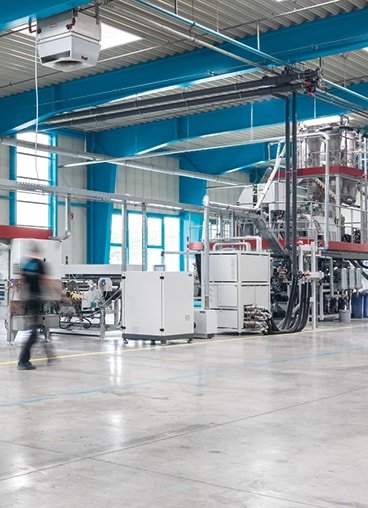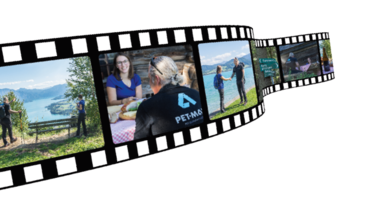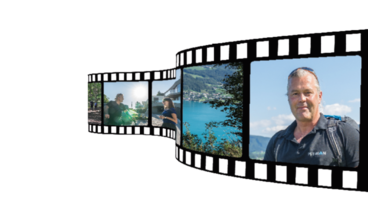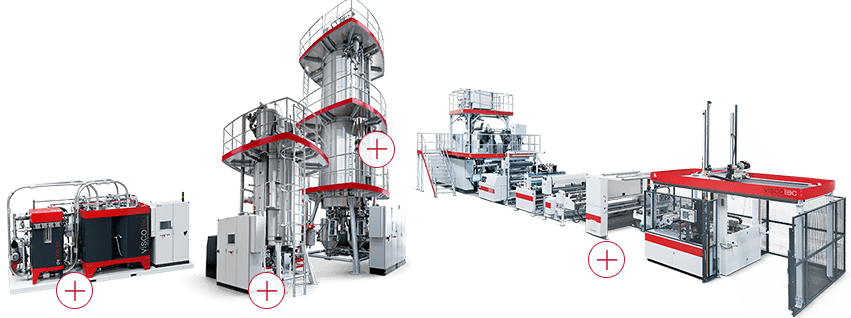Christina: You dealt with extrusion of PET already in your early days as a teenager. When and how did this rather specialized job come about?
Markus: Since my father worked at Lenzing AG, I started my apprenticeship there in 1988. I was one of the first 4 apprentices in the profession „Kunststoffverarbeiter“ in Austria. Already in 1989 I was allowed to run an extrusion line with PET for the first time. In 1998, I passed the masters for mechanical engineering and industrial engineering and switched to one of the first manufacturers of PET sheet in Europe. There I became technical Manager, which brought me into contact with viscotec.
Christina: You have worked in your career already with various extrusion technologies. What do you appreciate about the technology of viscotec?
Markus: viscotec systems are very easy to use and the reproduction of the process is greatly simplified due to the intelligent technology. From material preparation to winder, everything is out of a single hand, making it easy to train even inexperienced operators. I also appreciate the great service from viscotec. If a problem arises, viscotec‘s data collection software viscoLYZER is providing the process engineer with all he needs for in depth root-cause analysis. If there is no suitable solution for any requirement, something new is developed. All this makes the system very individual and as flexible as I need it.
Christina: What do you think about foodgrade? Is that important to your customers?
Markus: Basically, we only produce foodgrade sheet. Foodgrade is „standard“ for me. Even, the approx. 30% of our products that do not go into the food industry are produced at foodgrade standard.
Christina: Many products, especially food, are now available in packaging that has already been recycled. Do you see a certain trend in this regard?
Markus: Yes, definitely. In the past, post-consumer material was often used for cost reasons only. Meanwhile, many of my customers want to buy slides with up to 100% post-consumer content.
Christina: How will things progress with PET-MAN - what are your goals?
Markus: In sheet and product development we put a strong focus is on recyclability and sustainability. This especially concerns the replacement of PET / PE and PET / EVOH / PE sheet with pure mono-material PET sheet as well as stretching the temperature application window of PET and thus the replacement of non-recyclable PS. With the second viscoSHEET line, which will be installed early 2020, I deliberately took the path of a smaller, more flexible machine, in order to be able to continue to offer small product batches with a delivery time of 14 days to my customers.
Christina: Markus, as our first flake decontamination customer back in the early 2000, I would like to thank you on behalf of the viscotec team for the many years of successful cooperation and wish you all the best for your future.
Download PDF








